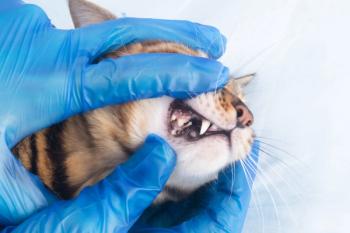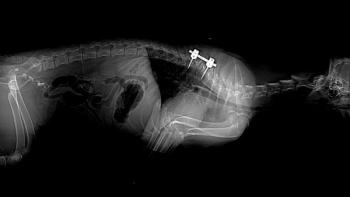
Journal Scan: Epilepsy of unknown cause in cats: What is it?
This article details the clinical characteristics and prevalence of epilepsy of unknown cause in cats and how this information may be applied as part of the diagnostic process in the clinical setting.
Why they did it
Unlike in dogs, genetic epilepsy has never been described in cats and has led to confusion with use of the term idiopathic epilepsy to describe epilepsy of unknown cause (EUC) in cats. The authors of this article explain the clinical characteristics and prevalence of EUC in cats and how this information may be applied as part of the diagnostic process in the clinical setting.
What they did
The authors retrospectively reviewed the medical records of 81 cats that had experienced seizures between 2005 and 2010. Inclusion in the study required documentation of two or more seizures, baseline laboratory data, and performance of magnetic resonance imaging (MRI) or postmortem examination. Seizures were classified as either focal or generalized. EUC was diagnosed if no abnormalities were found on interictal neurologic examination, laboratory testing, cerebrospinal fluid analysis, MRI, or postmortem examination. Cats with cortical, subcortical, or thalmic lesions evident on MRI or feline hippocampal necrosis found on postmortem examination were categorized as having structural epilepsy. Those with metabolic or toxic causes were classified as having acute symptomatic seizures. Owners were contacted regarding antiepileptic drug therapy, seizure frequency, and cause of death if applicable.
What they found
Among the 81 cats evaluated, structural brain lesions were identified in 38 (47%) either by MRI or postmortem examination. Metabolic or toxic causes were considered the cause of the seizures in 25 (31%) cats, and in 18 (22%) cats the cause of the epilepsy was not identified (EUC) despite extensive work up. Age of onset and sex was similar between all groups.
Most cats with EUC were domestic shorthaired cats, and the median age at seizure onset was 3.8 years with a range of 4 months to 14 years. Nine cats demonstrated focal or focal onset seizures, and cats with EUC were more likely to experience this type of seizure compared with cats with structural epilepsy or acute symptomatic seizures (P = 0.0029). Cats with EUC had normal neurologic examination results except for three cats that were examined postictally. Lactic acidosis, elevated creatine kinase activity, hyperglycemia, and elevations in alanine aminotransferase activity were present in 11 cats but were considered mild.
Cats with EUC may have a good prognosis since the one-year survival rate for these patients was 72% (13/18 cats), and 44% (8/18) of cats experienced a median seizure remission time of 1.4 years—five with antiepileptic drug therapy and three without. Phenobarbital was the initial antiepileptic drug used in all cats with EUC, but levetiracetam and zonisamide were used as adjunctive therapy in some cases. Five of 10 cats with active epilepsy (one or more epileptic seizure event during the last year or in the year preceding death) died or were euthanized as a result of their seizures.
Take-home message
EUC can be a true diagnosis in a subset of cats with seizures, but thorough diagnostic evaluation is warranted to rule out structural lesions or acute symptomatic seizures as these will have varying prognoses.
Wahle AM, Bruhschwein A, Matiasek K, et al. Clinical characterization of epilepsy of unknown origin in cats. J Vet Intern Med 2014;28:182-188.
Link to article:
Jennifer L. Garcia, DVM, DACVIM, is a veterinary internal medicine specialist at Sugarland Veterinary Specialists in Houston, Texas.
Newsletter
From exam room tips to practice management insights, get trusted veterinary news delivered straight to your inbox—subscribe to dvm360.





